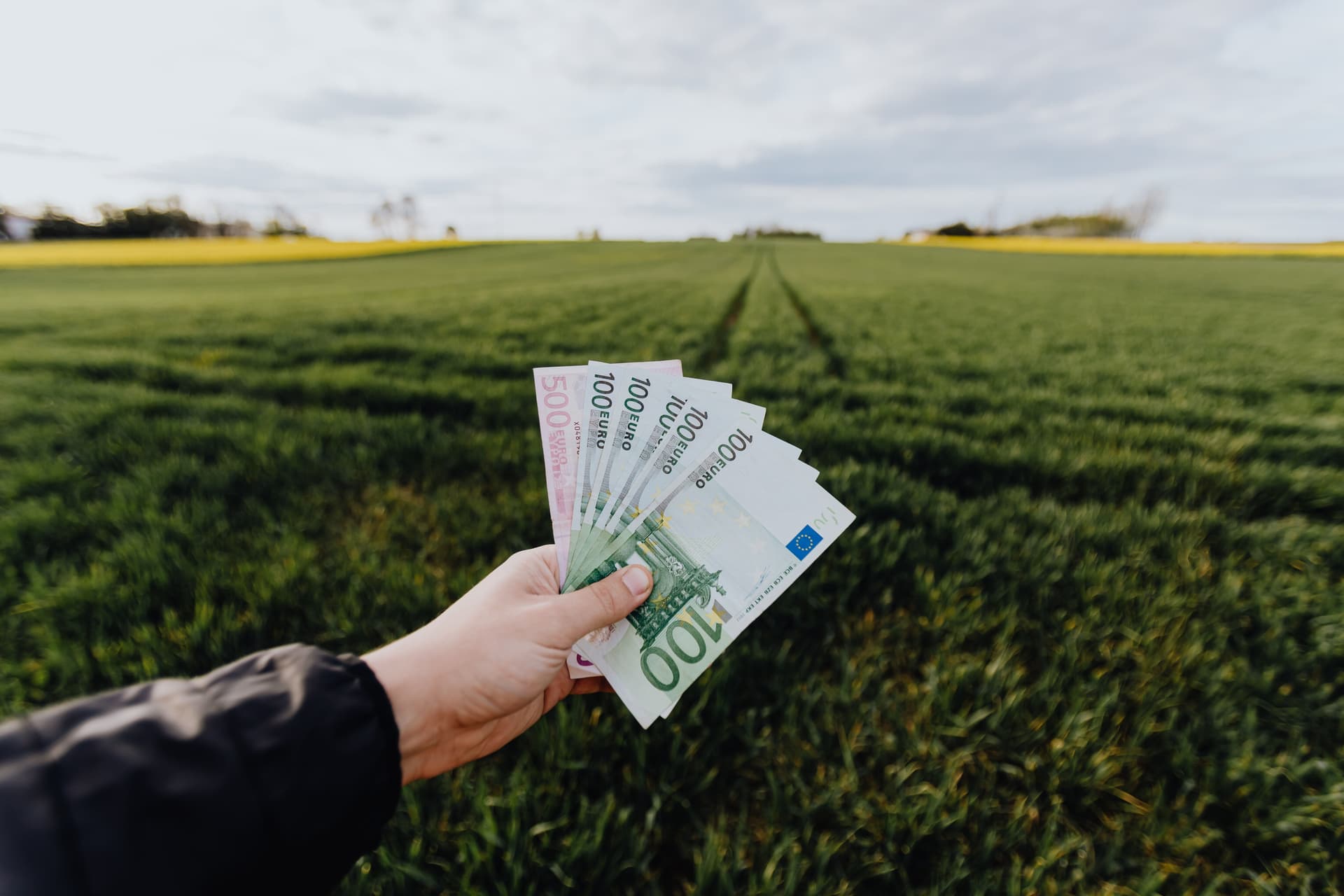
Why is Luxembourg so rich: steel, taxes, billionaires
In this article, we will examine the factors that contribute to Luxembourg's prosperity and provide an overview of the Grand Duchy's economic landscape, as well as answer to the most popular questions about Luxembourgish wealth.
Despite being one of the smallest countries in the European Union, Luxembourg stands out as the wealthiest nation in the world. Its remarkable economic success is reflected in the GDP per capita, which stood at 146,820 dollars at the end of 2025, according to the International Monetary Fund's latest data, which covers 190 countries.
Luxembourg economic system

What does it mean to say a country is rich, particularly at a time of growing income inequality between the super-rich and everyone else? GDP (Gross Domestic Product) measures the value of all the goods and services produced in a country and divides it by the number of full-time residents.
Luxembourg has a very high GDP per capita. This means that the average person in Luxembourg earns a lot of money. Read more about salaries in Luxembourg in our special article.
Iron and steel
Many people think that Luxembourg is wealthy because of its past iron and steel industries. At the beginning of the nineteenth century, about 80% of Luxembourg's population was employed in agriculture, living a hard and labor-intensive life. With the appearance of steel much changed.
The industrial revolution in Luxembourg began in the mid-19th century when the country joined the Zollverein, a German customs union.The major transformation of the Luxembourg steel industry was with the discovery of Minette, a low-quality iron.
This led to the construction of new steel mills and the expansion of existing ones, as Luxembourg became a major producer of steel in the world. The Luxembourg steel industry reached its peak in the early 20th century when it employed over 50,000 people.
However, the industry began to decline in the second half of the century, due to the rise of new steel producers in other countries and the increasing cost of energy. The last blast furnace closed in 1997. The industry has undergone a restructuring, and it is now focused on the production of high-value steel products.
However, even so, Luxembourg’s steel industry is currently going through a difficult period, which has worsened after the closure of Liberty Steel and the withdrawal of the Turkish contractor from the takeover deal.
Tax regimes in Luxembourg
Taxation in Luxembourg is characterized by its favorable tax regime, which has contributed to the country's reputation as a ‘tax heaven’ and a desirable location for businesses and high-net-worth individuals.
Here are some of the tax regimes and incentives that bring money and people into the country:
Corporate income tax
Personal income tax
SPF status
Intellectual property taxes
Talented people
Holdings incentives
Want to learn more about taxes in Luxembourg? Read our special articles dedicated to this topic in the Knowledge Library:
Luxembourg — a tax haven in the center of Europe
Companies and technologies
Luxembourg became home to many gigantic companies that decided to open offices in one of the smallest countries in the European Union.
Here are just a few examples of big corporations with headquarters in the Grand Duchy:
Amazon
Ferrero
These are just a few of the many large companies that have offices in Luxembourg. The country also became a home to other corporations, including Microsoft, Facebook, and HSBC.
Start-ups and businesses
Luxembourg is very committed to the development of start-ups and businesses. The government and different organizations team up to make sure entrepreneurs get the support they need to grow their start-ups and expand globally.
For example, Luxembourg has a special agency called Luxinnovation. One of their popular programs is Fit 4 Start, where selected start-ups receive money, coaching, and connections to experts and mentors. This program helps start-ups grow faster and prepares them to go global.
To get into the competition, you need to prepare a pitch and answer questions about your business that the organizers will ask. That’s it. You will only need other documents much later — if your start-up is selected
Official European offices
The Court of Justice of the European Union, based in Luxembourg City, is the highest court in the European Union. Its main role is to interpret EU law and ensure that it is applied consistently across the EU.
Luxembourg is also home to the European Investment Bank, which contributes to EU objectives by offering loans to support projects that advance areas such as infrastructure development, innovation and sustainable growth.
In addition, the European Investment Fund is a body set up by the European Union. Its purpose is to support small and medium-sized enterprises, encourage entrepreneurship and promote innovation across Europe.
These are just a few examples of the EU organizations and institutions located in Luxembourg. That makes the country even more important for European affairs and decision-making and richer with opportunities for expats.
Tourism industry in Luxembourg
Luxembourg's tourism sector is experiencing remarkable growth, attracting travelers from all over the world. This charming country captivates visitors with its idyllic scenery, rich cultural heritage, fascinating historical sites, and bustling urban centers.
Tourism is a significant contributor to the Luxembourg economy. In 2021, it directly contributed to 1.2% of Luxembourg's GDP and provided 38 617 jobs in 2019, 8.3% of total employment.
Tourism generates direct economic activity through the spending of tourists on accommodation, food, transport, activities, and souvenirs. This spending creates jobs and generates income for businesses in the tourism sector.
"The Easter weekend has also proved to be a success, with more than 2,000 people visiting the country. Most of them were from neighboring Germany, France, and Belgium. However, Internet hotel searches have already increased by 24% and are approaching the figures for 2019 according to the Directorate General of Tourism". — Luxembourg aims to beat the tourist record this year at Luxtoday.
How many billionaires are there in Luxembourg
Rich people may not live in Luxembourg, but their money is definitely here. Luxembourg has over 4 trillion dollars in assets under management.
The Grand Duchy also stores assets, the total value of which is estimated to be over 6 trillion euros, of 266 billionaires, more than any other country in the European Union.
One of the reasons why rich people keep their money in Luxembourg is because of the nice tax regime. The country has a low corporate tax rate of 24%, and there is no capital gains tax. This makes Luxembourg an attractive destination for billionaires and businesses looking to minimize their tax liability.
How much money does Luxembourg have
The state of Luxembourg has a budget of around 500 million euros. The budget is managed by the Ministry of Finance and divided into two main categories: ordinary and extraordinary.
Ordinary expenses refer to costs that are recurrent in nature, such as salaries, pensions and healthcare costs. These are ongoing expenses that are part of an entity's routine operations and obligations.
Extraordinary expenses, on the other hand, are less frequent and are typically associated with significant events or projects. Examples of extraordinary expenses are large-scale infrastructure projects, emergency responses and recovery operations following natural disasters, or unexpected financial burdens that are not part of regular operating expenses.
The main sources of revenue for the Luxembourg government are taxes, social security contributions, and dividends from state-owned enterprises.
As for the expenses, the main areas of expenditure for the government are social security, health care, education, and public administration.
Investments in and out of Luxembourg
Luxembourg boasts an impressive 16,777 investment funds, covering a wide range of sectors from venture capital to asset management and hedge funds. Together, these funds manage an impressive 4.5 trillion euros. This demonstrates Luxembourg's position as a hub for financial and investment activities.
In recent years, internal state investments have been made in various areas, including the development of roads, bridges, public transport systems, and energy initiatives.
Notably, the Luxembourg government has extended its investment efforts beyond its own borders, particularly in the Grand Est region. Investments have been made in the expansion and improvement of roads and railways with France. The government believes that these strategic investments will encourage cross-border cooperation and contribute to economic growth in the region.
Through these investments, Luxembourg aims to strengthen its economic performance, improve the quality of life of its citizens and keep the status of one of the wealthiest nations in the world.
How rich is Luxembourg, and how does it compare with other countries?
To answer this question, it is not enough to look at the level of GDP or other financial indicators independently, a deeper approach that analyses multiple aspects at the same time is necessary. Fortunately, it is not necessary to do it on your own, indicators such as the Hellosafe Prosperity Index do just that.
The Hellosafe Prosperity Index evaluates the wealth of 186 countries around the world based on six differently weighted indicators that combine economic, social and environmental development:
| Indicator | Source | Coefficient | Definition |
| GDP per capita | World Bank | 30 % | Provides an overall estimate of the wealth produced per capita, highlighting a country's economic capacity to generate resources. |
| GNI per capita | World Bank | 20 % | Provides a comprehensive view of disposable income for the population, taking into account international financial flows and the influence of foreign capital. |
| Gross national savings rate | World Bank | 5 % | Reflects a country's ability to save for the future, a key component of economic stability. |
| Human Development Index (HDI) | United Nations Development Program (UNDP) | 20 % | Takes into account life expectancy, education level and per capita income, providing a comprehensive overview of well-being and quality of life. |
| Gini coefficient | World Bank | 15 % | Measures income inequality and shows how well prosperity is distributed among citizens. |
| Poverty rate | Banque Mondiale | 10 % | Indicates the proportion of the population living below the national poverty line, a key aspect of assessing living standards. |
According to this index, Luxembourg is in first place as the most prosperous country in the world in 2025 with a score of 86.2 out of 100, followed by Norway with 85.1 and Ireland with 84.7. Qatar and Singapore stand out as the only non-European countries in the top five and on the American side, the United States and Canada are fighting to avoid being left out of the top 20, occupying 18th and 19th place, respectively. France closes the top 20 with a score of 60.4, which illustrates a high level of prosperity, although lower than that of other countries.

Frequently Asked Questions (FAQ)
How rich is the average person in Luxembourg?
Do you get paid well in Luxembourg?
Why is Luxembourg one of the richest countries in the world?
Source: guichet.public.lu, www.vdl.lu, www.forbes.com, tradingeconomics.com, www.imf.org, www.gfmag.com
We took photos from these sources: Photo by Karolina Grabowska, Pexels; Photo by GukHwa Jang, Unsplash

